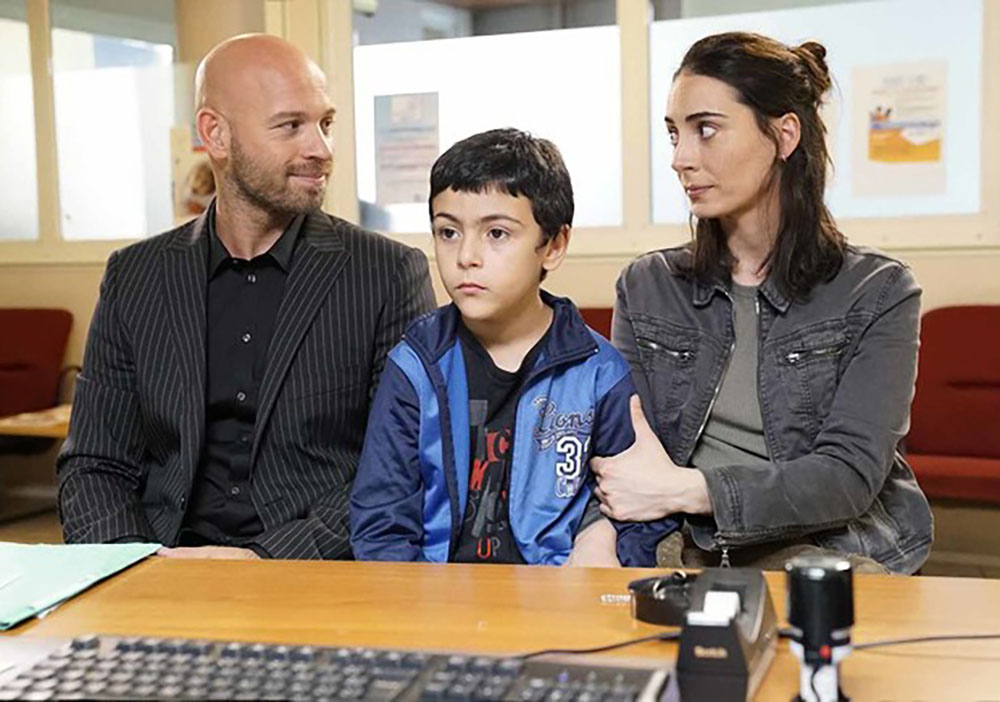“Adopt a Daddy” (“Damien veut changer le monde,” original title) is French comedy about Damien, a primary school teacher who illegally claims to be the father of a student to stop him and his mother from being deported back to Syria. It quickly escalates into Damien and his peers taking up multiple children as their sons and daughters as a form of grassroots activism.
As the operation grows bigger, Damien and his friends each take up more sons and daughters than they can keep track of. They run the risk of being found out by the police, which would result in a hefty jail sentence for the men, and deportation for all the women and their children. Written and directed by Xavier de Choudens, “Adopt a Daddy” is funny, quirky, and has a real beating heart. This film zealously encourages viewers to take up their own true activism in a climate where retweeting and re-blogging seems to have replaced real work and risk.
“Adopt a Daddy” has an outrageous and original premise, but the story beats it takes to get to where it’s going are all very predictable. This is a formulaic film that doesn’t attempt to jump into new territory when it comes to how a story is told. It follows a tight structure, which makes the film comprehensive and digestible, and has a very paint-by-numbers approach. There’s nothing inherently wrong with it, but it’s certainly less creative.
It is important to note, however, that this is an entertaining film. At times, it can be corny, and the acting isn’t always great. However, these aspects don’t take away from the viewing experience. The film is also very unrealistic in a naive way. There are grim truths the film refuses to look at. However, this is a comedy. It’s someone else’s job to look at those truths. This movie is for a good time.
“Adopt a Daddy” makes no real choices when it comes to art direction. The costumes are fine. The props are fine. The sets are fine. None of these things are looking to make any statement. The cinematography follows suit as there were no unordinary or creative shot choices. I assume all of this is by design. The music was not memorable at its best, and trite at its worst. These are all aspects that will hinder the experience for film critics and scholars. However, for your average viewer, these details will not inhibit enjoyment of the movie.

“Adopt a Daddy” frames female rage in a positive light. All the women in this film are angry to a certain degree. Their vexation is not a character flaw that they must overcome in their arcs; in fact, it’s quite the opposite. The men in the film grow by taking on the rage of the women around them.
For instance, one character, Selma (Melisa Sözen) angrily rebuffs Damien (Franck Gastambide) in the name of protecting her son. It’s a healthy skepticism that has surely saved her in the past. The other immigrant mothers angrily insist they and their children be assisted in a pathway to French citizenship. Without their pushing, they would not have gotten the help they needed.
In another scene, Damien’s sister, Mélanie (Camille Lellouche) is a lawyer who angrily defends her clients and her family. Most importantly to the story, Damien and Mélanie’s mother was an angry hippie type who fought injustice wherever she saw it and implored others to do the same. The film does not construe the women’s rage as hysterical, unreasonable, or as shrill complaining. Instead, we see their fury as passion necessary to move people and to create change.
It is best said by Soraya Chemaly in her book “Rage Becomes Her: The Power of Women’s Anger,” “Women should be angry about the violence and fear that inform so much of our lives…Anger is the emotion that best protects us against danger, unfairness, and injustice. Understanding it and learning to think about its methodical uses in response to threats like these allows girls and women to move from passivity, fear, and withdrawal to awareness, engagement, and change.”
Why is this important? Because the women in “Adopt a Daddy” are mad and they should be. In addition, the men in this film are all nurturers. They readily take on the role of father and jump into these kids’ lives, providing plenty of hugs and kisses. “Adopt A Daddy” breaks down stereotypes, and provides a model of a healthier masculinity and femininity.
As said, “Adopt a Daddy” is not a cinematic masterpiece. It’s a silly romantic comedy with a fun premise. This movie does not take itself too seriously but still manages to say a lot about citizenship, immigration, parenthood, and female rage. A highly effective and enjoyable film, it’s is sure to elicit some laughs along with some tears.
*Note: we could not currently identify any streaming options for “Adopt a Daddy.”
2 Comments
I like this feminist take. Great points all around.
Cool review. Cool ideas